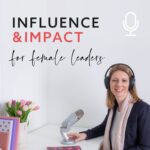If you are feeling stuck in your career you’ll be pleased to hear that there is now a framework you can use to identify the steps you can take to move towards career fulfilment. This framework was created by my guest on this podcast, Dr Hannah Roberts, author of Intentional Careers for STEM Women.
In our conversation we cover…
– What it means to have an intentional career rather than an unconscious career
– The ‘proving’ cycle many of us get stuck in when we start a job
– What can cause us to become unfulfilled in our career or overworked to the point where it is unsustainable
– How to find alignment in your career through purpose, mission and vision
– The 3 career pivots that will help you work out what you need to change to find career happiness
Hannah’s book is a fantastic resource for any woman wanting to take control of her career and also goes deep on many of the issues on the confidence issues many women struggle with. I highly recommend grabbing a copy.
About Dr Hannah Roberts:
As founder of Intentional Careers™, author of Amazon #1 bestseller Intentional Careers for STEM Women and host of a top 10 UK podcast, top 5% globally Women in STEM Career & Confidence, Dr Hannah Roberts is an award-winning coach on a mission to eradicate inequity in the workplace by guiding professionals to design careers for fulfilment with a mindset for leadership to build progressive workplace cultures where every individual feels valued.
Hannah is uniquely positioned as a scientist, mum of three with a background in corporate and academia. She was managing director of a spin-out company before pivoting into coaching, speaking and training in 2019. She has clients spanning 6 continents and is a certified One of Many™ Women’s Leadership Coach and Trainer with the Professional Certified Coach credential from the International Coaching Federation and has been a member of the Forbes Coaches Council since 2022.
Useful links:
- Dr Hannah Roberts website
- Career Accelerator Scorecard
- Free strategy session
- Read The Book ‘Intentional Careers for STEM Women’
- Connect with Hannah on:
- X (Twitter) @HannahNikeR
- Instagram @drhannahroberts
WORK WITH ME:
If you’d like to talk to me about working together do book a call.
How I work with individuals:
- 1:1 executive coaching
- Be Bolder confidence and assertiveness course
- Influence & Impact women’s leadership programme
How I work with organisations:
